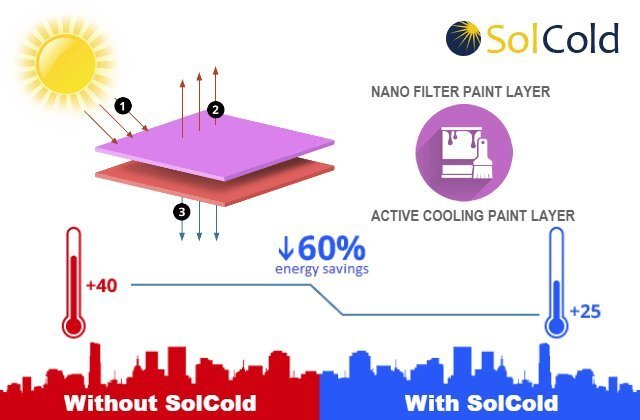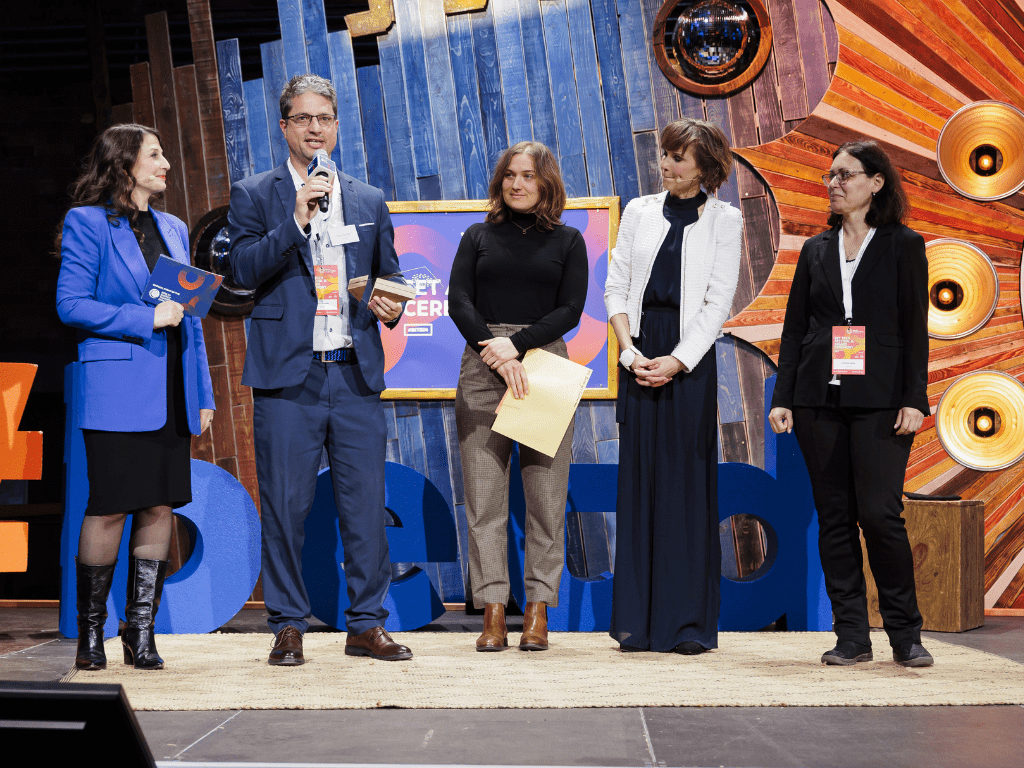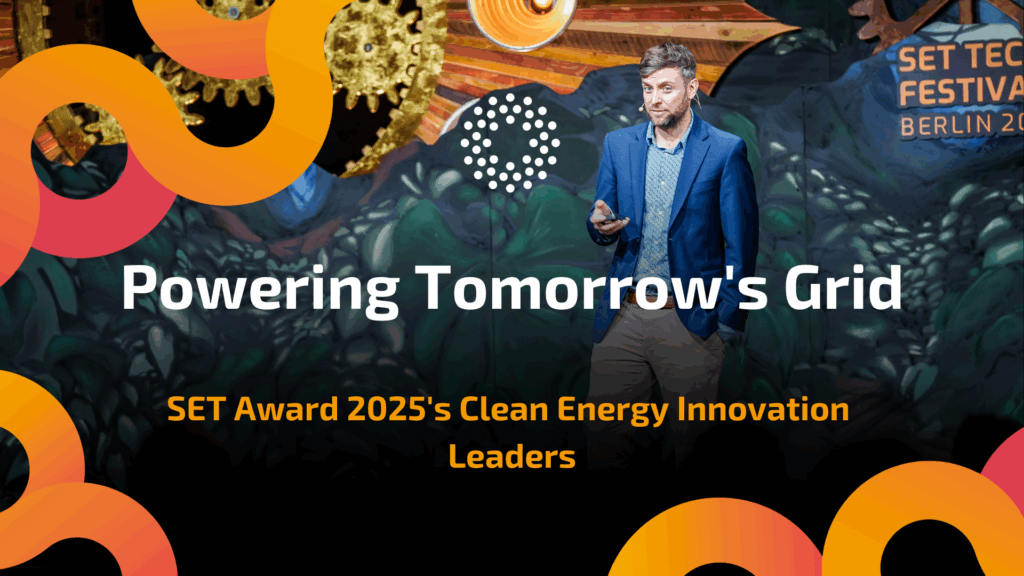The climate tech sector is on an extraordinary ascent, with global investment in energy transition reaching a record $1.8 trillion in 2023, marking a 17% increase from the previous year. This upswing signifies a decisive shift towards clean technology solutions, reflecting a deepening commitment to sustainable innovation globally. The 2024 SET100 startups, pulled from more than 430 applications from over 75 countries, are at the forefront of this charge—a result of their pioneering innovations driving significant advancements in high-impact sectors.
In the second of our deep-dive interviews with the SET24 winners, we talk to SolCold’s CEO and co-founder, Yaron Shenhav, about his company’s self-cooling technology, the challenges and opportunities of developing such a technologically complex business, and how his solution has inadvertently helped the beer brewing industry.
Israeli startup SolCold is developing a sustainable, self-cooling technology that uses sunlight to reduce the interior temperature of buildings or vehicles without consuming electricity.
“It’s an energy-consuming cooling solution,” explains Shenhav in the startup showcase zone at this year’s SET Tech Festival. “It’s a coating, it comes as a film, just like a wallpaper. It’s comprised of several layers stacked one on top of the other. All of them together function as a system as such so that once you take this film outside of its natural environment and expose it to sunlight, it passively operates.” And what is the key innovation? “Well, you don’t have to connect it to anything,” adds Shenhav. “The only way it is active is in the way it is generating active cooling power. That means the temperature it produces will always be cooler than the air that surrounds it.”
Founded in 2016, SolCold is arguably a world leader in the research and development of outdoor self-cooling technology. But the journey itself was long and littered with pitfalls.

“From inception, it took us two years from development initially at Hebrew University and then another three-and-a-half years just to get the first product. So now you can imagine how many hurdles there are in that process. From here to the horizon,” explains Shenhav. Within those five years, he explains, his company dealt with a series of questions that would continually challenge them. “Questions like, ‘How do you start this business? How do you prove your technology? How do you synthesize the nanoparticles to make your solution work at scale, or at all? How can you make nanoparticles eco-friendly to avoid using rare earth materials? How do you then combine your materials so that you will get actual frequencies to activate them?’ So,” he adds, “there are many technical hurdles.”
“And of course, when you find a solution that works, you need money. You need money to pass all these hurdles. But I think I’m sharing the same concerns as many of the other startups here as well.”
Indeed, in the course of our chat, Shenhav and SolCold touch upon issues common to many young companies in the clean energy and climate tech world, especially those dealing with a physical product: the difficulty of synthesizing and combining complex materials; overcoming rare earth material limitations; funding and support; the difficulty of scalability; the potentially disruptive impact of new technology that comes along just as you’re honing your product; and, finally, the need for investment and trust that only really comes through partnerships, and that sometimes those partnerships may not be in your home market.
“So, curiously, most of our investments come from Japan,” explains Shenhav. “We also have investors from Singapore and the United States. But if you look at our cap table, the largest investment for us actually came from Japan. Of course, at the different stages of development, we’ve received assistance financially from local bodies in Israel. The ecosystem there has been great in really supporting us at the beginning. But, now, interestingly there has mostly been interest and support from outside Israel, globally, which is great!”

SolCold’s self-cooling technology won in the Buildings & Construction category. A crucial sector for the energy transition, the operations of buildings accounted for 30% of global final energy consumption and 26% of global energy-related emissions in 2022, according to the International Energy Agency — 8% being direct emissions in buildings and 18% indirect emissions from the production of electricity and heat used in buildings. Of course, in this sector, SET100 startups are also setting the pace: bringing modern, eco-friendly construction and urban planning solutions to market and innovating at the intersection of technology and sustainability.
With tools like AI and drone thermography, companies like QEA Tech are pushing the boundaries of energy efficiency. Their efforts, alongside material innovations from SolCold, for instance, or Hyperion Robotics, which offers low-carbon construction materials, are carving out new paths for energy conservation in building materials. These advancements are complemented by a comprehensive approach to building lifecycle analysis, demonstrated by the likes of Vizcab and Thermosphr EO Solutions. Start-ups in this category are part of a larger movement towards digitization and advanced surveying in construction, signifying a shift to smarter, more sustainable building practices.
And it seems like the sector is eager and ready to implement these solutions. “We can go pretty much everywhere,” adds Shenhav. “It’s a great place to be; a ‘rich guy problem’ maybe, but it’s still a problem. We have to decide where to go, which means important decisions of course. But the great thing about our product and our sector is that there are so many immediate applications. I mean, everything that needs to be cooled down and is outdoors, we can cool them down. I mean, from things like electronics, to cars, to containers, to ships, to airplanes, even textiles, so with tents for example, and of course military applications — it goes everywhere. How do you start? Where do you start?”
Indeed, the list of current and past projects from SolCold is as eclectic as it is extensive. From collaborations with municipal agencies on telecommunications, to defense agency projects, big-name automotive brands like Volkswagen and their latest project with beer giant AbnBev on their electric cooling trucks, SolCold certainly has varied applications.
“Yes, that actually reminds me of one of our latest test collaborations actually,” adds Shenhav. “It’s a beer silo with a beer company. And it’s huge; several thousands of square meters. And we went there and coated one of the silos, and on top of just reducing energy consumption, one of the inadvertent knock-on effects of SolCold’s tech was that we actually increased the production of alcohol in there because we maintained the lower temperatures at a solid constant. Crazy!”
So, what next for SolCold? Perhaps brewing beer…
Follow SolCold’s LinkedIn here, deep dive into SET Tech Festival and SET Award’s 2024 impact here, check out our other SET24 winners here and download the 2024 SET100 here.


